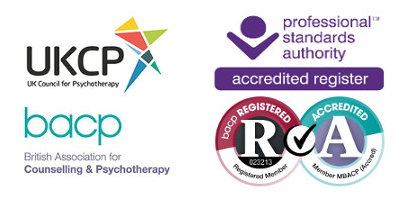Bereavement Counselling in London
Therapy for grief or the loss of a loved one with Marcus
Bereavement is one of the most common reasons why people seek therapy. Many people have found bereavement counselling supportive when they are trying to cope with the grieving process.
Someone dying often arouses a mix of complex and difficult emotions. It is painful, even devastating, when someone significant dies. The death of a close person can be one of the most distressing experiences you will ever have: your love does not simply disappear when they die. Bereavement counselling or therapy is aimed at helping you come to terms with what has ‘hit’ you.
What is grief?
Grief is a natural, universal reaction to loss. As we all suffer bereavements or losses in the course of our lives, we will all encounter grief at some point. It is an ordinary and healthy part of life.
The form grief takes is very variable and personal. It used to be said that there are 5 stages of grief – denial, anger, bargaining, depression and acceptance – but this certainly does not describe everyone’s journey through the grieving process.
Whatever your particular process is, understand that everyone reacts to bereavement differently and there is no ‘normal’ or ‘right’ way to experience grief.
As a Bereavement Counsellor I often hear these questions:
‘Why haven’t I cried?’ ‘Am I normal?’
or
‘Why haven’t I stopped crying yet?’
We all grieve in our own way and in our own time. It is a very individual matter, and there is no ‘proper’ way to do it and no predictable timeframe.
Possible, relevant factors include our own age, our past experiences of loss, our relationship to the person who has died, and the circumstances of their dying – was it a long illness? was it preventable? were they young? was it suicide, accident or death by natural causes?
Emotions triggered following a bereavement:
Emotions that can very often be triggered by an experience of bereavement are listed here. Some people don’t feel any of them with any great intensity. Others feel them deeply, or move between them rapidly, which can feel like mood swings and can be quite alarming (though these too are ‘normal’). Other people can feel ‘stuck’ in one particular emotional state.
- Guilt, regret: people often ruminate over what they did or didn’t say or do before the person died.
- Shock, disbelief: the reality of the death may feel like it isn’t sinking in.
- Sadness, loneliness: that companionship has vanished, along with hopes or expectations you had for the future; there is a whole new world to adapt to, whilst your friends might not understand, or you feel you don’t want to ‘burden’ them.
- Anger: people are sometimes angry with the person who has ‘abandoned’ them, and death itself seems, from one perspective, to be a cruel injustice (instead of a normal part of life).
- Stress, pain: bereavement can trigger all sorts of pain and stress reactions, both physical and emotional.
- Relief: realistically speaking, dying often comes as a relief, whether to the person who has died or to the bereaved.
“Thank you for your patience, understanding and guidance – it has truly been the main vehicle for getting me through this tough experience.” – M.
What helps you cope with bereavement?
Bereaved people are often more resilient than they realise. Bereavement Counselling can help you appreciate and make sense of your reactions. There are four broad types of reaction to bereavement:
- For many people, following a death, it is very important as quickly as possible to get back a sense of family and community. There is a process of re-grouping and normalising that needs to be gone through. Organising a fitting funeral and wake, and perhaps a memorial service, will be important steps in healing and recovery.
- For others, a key priority is to preserve the memory of the loved one. They will be looking at photographs with the family and exchanging stories and memories, especially with the children of the next generation, and this may go on for a long time.
- Other people find true solace in helping those who suffer from the same medical condition that caused their loved one’s death. They find a way to give meaning to what has happened, and this at the same time helps them through their grief.
- For others, meaning is given to their lives through their religious, philosophical or spiritual beliefs.
Many people naturally fit into more than one of these models of mourning and grief. What all of these reactions have in common is:
- people are experiencing the normal effects of human loss and bereavement,
- time does lessen the intensity of grief, eventually, for everyone,
- rituals of many types help us to mark the stages of our personal grief process and work through our feelings.
“Though there is little joy to be found in it, still death is not a monstrous evil that drags us off to some unimaginably terrible place. It is an event, a part of life, the end of further possibilities, a neutral event. The fact of death bestows a special poignancy, a bittersweet quality, to life’s activities.” Irvin Yalom, professor of psychiatry
How does Bereavement Counselling help?
Many people have found that sharing their feelings and their grieving process with an experienced and warmly empathic bereavement counsellor helps them understand and resolve their grief. Therapists, like Marcus, witness and accompany you on your grieving journey to support your recovery and healing and help you, in your own time, to reach a sense of acceptance and readiness to move on.
Bereavement Counselling in London with Marcus
Take the first step and contact Marcus to discuss Bereavement and Grief Counselling.
Some helpful articles and web pages on Bereavement, Grief and Loss
Cruise
Cruse Bereavement Care is the leading national charity for bereaved people in England, Wales and Northern Ireland.
They offer help and advice through the process of bereavement.
www.cruse.org.uk
Sheryl Sandberg
A moving piece written by Sherly Sandberg explores the her emotions following the death of her husband. Read the full article
Juliet Rosenfeld
Juliet Rosenfeld’s husband died suddenly a year ago during treatment for cancer. She describes her struggle to absorb the brutal fact of his death. Read the full Guardian article
Stephen Jenkinson: GriefWalker
“Trailer for a Canadian documentary of Stephen Jenkinson’s work with dying people, asking ‘What does it take to fall in love with being alive?’ The answer comes, ‘Being willing to see the end of what you love’. Other questions explored are, Has it always been this hard to die? What do dying people fear most? When do you really begin to die, and what are you supposed to do then? How is it that grief is a skill, something to be learned and practiced?”



